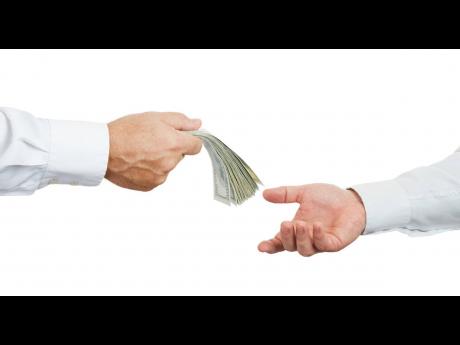Peter Espeut | Tedeh fi yuh, tomorrow fi me!
The Jamaica Labour Party won the 2020 general election with only 408,376 votes of the 1,913,410 registered voters, which means they had the support of only 21 per cent of the electorate, a relatively small minority.
I do not agree with the many analysts who attribute the decline in voter turnout over the last decades to “voter apathy”. The number of rabid “die-hearted” party supporters from both sides is declining, which in my opinion indicates a maturing of the Jamaican voter. A growing number (the majority) of Jamaicans reject both our major political parties because they see them as corrupt, self-serving, power-hungry, and full of people out for what they can get. A considered decision not to vote for parties like that is not apathy, but the height of patriotism.
Stump campaign speeches and manifestos all promise zero tolerance for political corruption, but performance in power reveals the hypocrisy of all that. Even in opposition Jamaican political parties rarely support serious anti-corruption legislation, for the party in opposition today may be in government tomorrow, and will find their ability to plunder the public purse constrained. “Tedeh fi yuh, but tomorrow fi mi” is the operating principle.
I predicted that the creation of a single anti-corruption agency by merging the Commission for the Prevention of Corruption, the Integrity Commission, and the Office of the Contractor General would in fact slow down the detection and prosecution of political corruption. Both parties collaborated to make the deliberations of the merged entity secret; gone are the days when reports from the contractor general revealed nepotism and impropriety in the political awarding of contracts.
Thank God, the auditor general managed to avoid being drawn into this toothless impotent merged entity, or even more corruption would go undiscovered!
DECLARATION OF ASSETS
Both parties have collaborated to make declaration of assets by public officials confidential, to make influence-peddling through political contributions hard to identify, and to prevent certain common offences like nepotism and cronyism and breaching procurement guidelines becoming illegal. The main enemy of corruption is transparency, and both Jamaican political parties join together to fight transparency.
Board members (usually strong party supporters and donors) of agencies caught in corruption often are not required to resign, are never prosecuted, and are never required to make restitution of their ill-gotten gains. Persons improperly hired (usually unqualified) are usually retired with multimillion-dollar separation packages, compounding the corruption. Those who hired them – and others who make the spectrum of corruption happen – may find themselves with high national honours. Both parties make the corrupt system work – to their benefit.
Some years ago, a government lands official was found to have improperly transferred government lands to politicians and family members, including his wife; the lands were not returned to the public trust, because, it was said, the transaction was legally completed. And why – the argument was advanced – should politicians be discriminated against by not being allowed to receive government land like other Jamaican citizens?
Why indeed!
And why not allow wives and siblings and children of public officials to corruptly enter into legally binding contracts with government agencies? Why discriminate against them?
Why indeed!
Why is it that nepotism and cronyism – awarding contracts, waivers or other benefits to family, friends and associates – is not a crime in Jamaica? Many people support political parties for what they can get, and any party which says that if they get into power they will not reward their family members, friends and supporters with jobs, contracts, waivers, exemptions, places in top schools for their children, and the like, may not get elected.
VIRTUALLY UNTOUCHABLE
Why is it that our police force cannot apprehend and prosecute the big people in Jamaica behind the trade in illegal drugs and firearms, and extortion and protection rackets? These big criminals are well-connected politically – to both sides – and are virtually untouchable. Local and foreign intelligence agencies well know who they are, but there is no political will to apprehend them, for the system would crack.
More and more Jamaicans are rejecting our corrupt political parties, and are staying away from the polls, since they have sensitive consciences.
Since both political parties are corrupt, corruption is never a serious campaign issue. Political scandals and patent corruption have never prevented a person or a party being elected because in our electoral system (created by those same political animals) refusing to vote counts for nothing. The truth is, electoral data suggests that “none of the above” has won the last several general elections in Jamaica!
Our present political arrangements are unsustainable; winning with the support of only 21 per cent of the electorate is already ludicrous. The system is designed to function even if a party wins a general election with only 10 per cent of the registered voters.
A government in power supported by only a small minority is inherently unstable. It will not take much for things to come apart, and such a situation will benefit no one.
Public pressure must increase for transparency in public affairs: for the public declaration of assets by public officials, for all political campaign contributions to be made public, for nepotism and cronyism and breaching procurement guidelines to become criminal offences, for persons caught in corruption to be prosecuted without interference, for contracts improperly entered into to be cancelled, for corrupt transfer of public assets to be reversed.
Only then would we have a meaningful democracy our people could participate in with clear consciences.
Peter Espeut is a sociologist and development scientist. Send feedback to columns@gleanerjm.com

